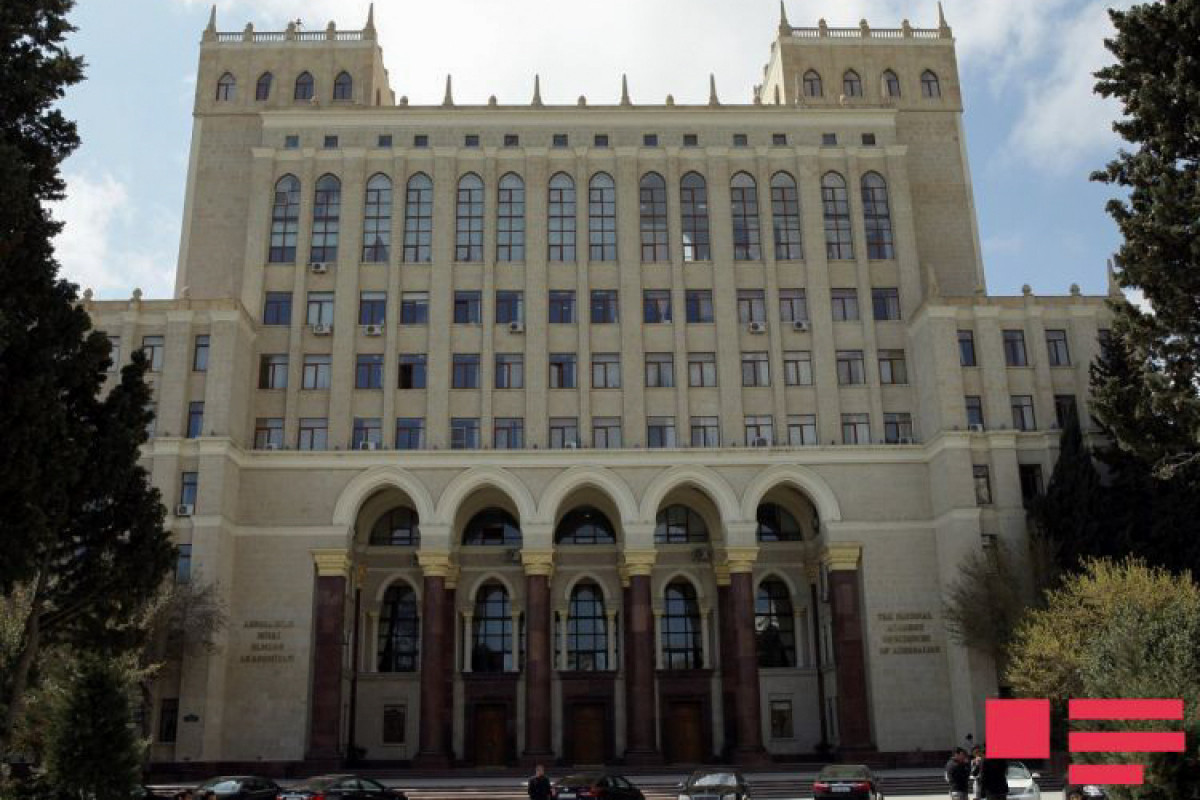"Currently, mathematics, physics, computer science, etc.
The lack of teaching hours allocated to fundamental subjects does not allow students to acquire deep scientific knowledge.
There is a great need for basic content renewal in education in the field of fundamental sciences.
APA reports that Honored Scientist, Head of the Department of Mathematical-Physical Equations of Baku State University, Academician Yusif Mammadov said this at the meeting of the General Assembly of the Department of Physics, Mathematics and Technical Sciences of ANAS.
According to him, it is appropriate to take advantage of the advanced experience of developed countries in order to achieve more efficient results in the relevant direction:
"My research in the curricula of the faculties of Mathematics and Mechanics, Applied Mathematics, and Physics at Baku State University shows that there are serious flaws in the sequence of teaching subjects, the amount of hours allocated to them, and their selection.
For example, in the Faculty of Applied Mathematics, the subject "Differential equations of applied importance" was included in the III year of one of the majors.
However, in the previous courses, the subject "Differential equations" was not taught in this specialty.
Therefore, a student should learn about differential equations of significant application without any knowledge of differential equation and its solution methods, and it is difficult to understand the possibility of this."
At the same time, he said that only 15 hours were allocated to the subject "Mathematical Physics" in the Faculty of Physics, which is also in the section of elective subjects:
"There are very few hours allocated to other mathematical subjects.
This is unacceptable, because classical and modern theoretical physics is based on mathematics, especially mathematical physics.
These types of deficiencies exist in all faculties where fundamental sciences are taught.
In the Faculty of Applied Mathematics, there are 2 departments related to "Informatics", which have teachers who teach more than 30 hours.
The subjects included in the curricula of these departments are adapted to the curricula of leading universities of the world.
However, there are no textbooks for most of these subjects, and some of the teachers involved are less competent.
In such a case, the hours allocated to such subjects can be considered lost.
According to the academician, curricula are formed on the basis of "Educational standards" and these standards are prepared by commissions organized by the Ministry of Science and Education.
"The above and other shortcomings may be related to the competence of these commissions in the fields.
On the other hand, the Ministry of Science and Education gives the commissions an hourly limit (weekly, yearly) taken from foreign countries.
However, in addition, they stipulate that certain subjects (non-profile) must be standardized (with sufficient volume of hours).
However, there are no such subjects in the programs of the countries from which the total number of hours is taken.
In this case, there are no or very few hours left for the subjects that are important for the major.
Undoubtedly, those non-profile subjects offered by the Ministry of Science and Education are also very important.
However, the hours given to them should not be limited to profile subjects.
For example, the subject "Fundamentals of entrepreneurship and business" in the teaching specialty at the Faculty of Applied Mathematics,
"Medical knowledge", "Municipal defense", "History", "Political science", "Sociology", etc. in all faculties.
such subjects are taught.
In my opinion, for students studying at faculties related to mathematics, physics, chemistry and other fundamental sciences, it will be more targeted if such subjects are mastered through optional classes and associations," said the scientist.
At the same time, the academician touched upon the issue of magistracy entrance exams: "It is commendable to pay special attention to foreign language skills in magistracy entrance exams, but the lack of a specialty exam is, in my opinion, unacceptable."
